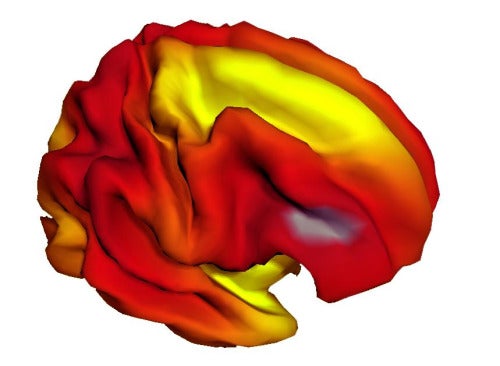Poorer children have smaller brains than more affluent ones, study finds
Scientists in the US said the link could be associated with differences in nutrition, health and education

Your support helps us to tell the story
From reproductive rights to climate change to Big Tech, The Independent is on the ground when the story is developing. Whether it's investigating the financials of Elon Musk's pro-Trump PAC or producing our latest documentary, 'The A Word', which shines a light on the American women fighting for reproductive rights, we know how important it is to parse out the facts from the messaging.
At such a critical moment in US history, we need reporters on the ground. Your donation allows us to keep sending journalists to speak to both sides of the story.
The Independent is trusted by Americans across the entire political spectrum. And unlike many other quality news outlets, we choose not to lock Americans out of our reporting and analysis with paywalls. We believe quality journalism should be available to everyone, paid for by those who can afford it.
Your support makes all the difference.Children from lower income families have smaller brains than those from more affluent backgrounds, a study in the US has found.
Researchers stressed that the links found do not mean that poverty hinders cognitive development or that poor children are less intelligent.
The study, led by researchers at The Saban Research Institute of Children’s Hospital Los Angeles and Columbia University Medical Centre, in New York, looked at almost 1,100 people between the ages of three and 20.
Using socioeconomic questionnaires, brain surface area measurements and high-resolution MRI scans, investigators from nine universities found a link between household income and brain structure.

The correlation was strongest at the lowest end of the economic range, the paper published in Nature Neuroscience found, showing that children whose families earned less than $25,000 (£17,000) a year had 6 per cent less surface area than those whose household earned $150,000 (£100,000) or more.
Elizabeth Sowell, part of the Institute for the Developing Mind at the Children’s Hospital, said: “While in no way implying that a child’s socioeconomic circumstances lead to immutable changes in brain development or cognition, our data suggest that wider access to resources likely afforded by the more affluent may lead to differences in a child’s brain structure.”
The differences in brain surface area were most prominent in regions supporting language, reading, executive functions and special skills, the team found.

Lead author Kimberly Noble, professor of Paediatrics at Columbia University Medical Centre, said: “Specifically, among children from the lowest-income families, small differences in income were associated with relatively large differences in surface area in a number of regions of the brain associated with skills important for academic success.”
Among children from higher-income families, tiny increases in income level were associated with much smaller differences in surface area, and affluence was also associated with better performance in cognitive skills that could be partly accounted for by greater brain surface area.
Dr Sowell said income was linked to factors including nutrition, health, education and play, adding that everything in a child’s environment shapes the development of their brain.
“Future research may address the question of whether changing a child’s environment – for instance, through social policies aimed at reducing family poverty – could change the trajectory of brain development and cognition for the better,” she added.
The study offers two possible theories about what is causing the apparent links – a lack of access to good nutrition, healthcare and other factors helping development, and the fact that increased family stress leads to a lack of “cognitive stimulation”.
“Correlation is not causation,” Dr Noble told the Washington Post. “We can talk about links between parent education and family income and children’s brain structure but we can’t say for sure these differences are causing differences in brain structure.”
Join our commenting forum
Join thought-provoking conversations, follow other Independent readers and see their replies
Comments